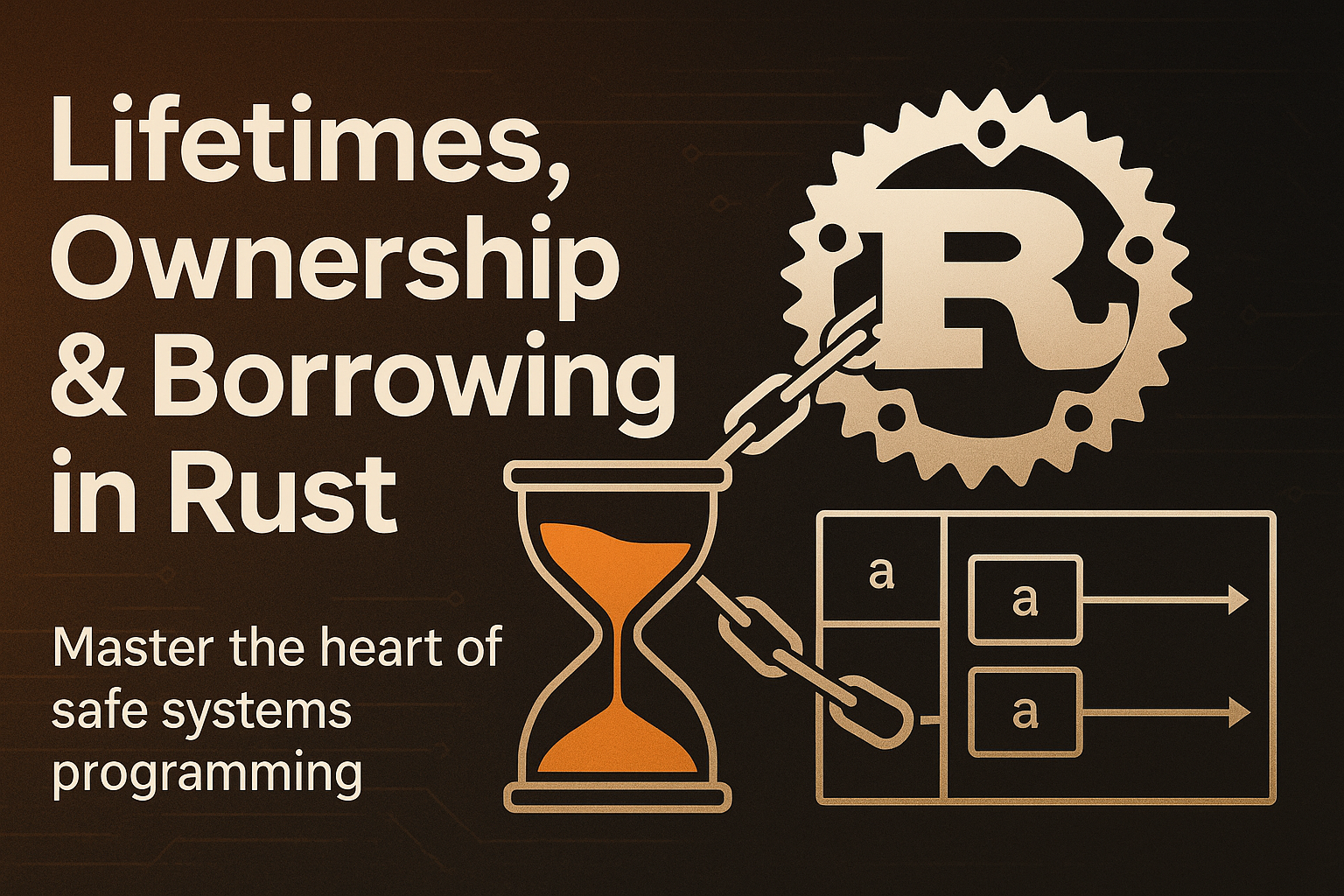Lifetimes, ownership, and borrowing in Rust

When learning Rust, one of the first hurdles newcomers face is understanding ownership, borrowing, and lifetimes. These core concepts can seem daunting at first, but once grasped, they reveal the elegance and safety Rust offers by design.
According to the book Rust in Action:
Ownership is a stretched metaphor. There is no relationship to property rights. Within Rust, ownership relates to cleaning values when these are no longer needed. For example, when a function returns, the memory holding its local variables needs to be freed. Owners cannot prevent other parts of the program from accessing their values or report data theft to some overarching Rust authority.
To borrow a value means to access it. This terminology is somewhat confusing, as there is no obligation to return the value to its owner. The term is used to emphasize that while values can have a single owner, many parts of the program can share access to those values.
A value’s lifetime is the period during which accessing that value is valid behavior. A function’s local variables live until the function returns, while global variables might live for the life of the program.
Rust's Borrow Checker: A Double-Edged Sword?
There’s a running joke in the Rust community that goes like this:
How to make Rust feel like Python?
Just sprinkle.clone(), wrap it in anArc, and toss in aMutex, congratulations, you’ve defeated the borrow checker and your performance!
It’s funny because it’s true. But it also misses the point. Rust doesn’t stop you from sharing data; it just asks you to be explicit about how you do it. And for good reason these checks exist to catch memory bugs at compile time, not runtime.
So How Do You "Do Rust Right"?
The book offers some sage advice here:
Four general strategies to help with ownership issues:
- Use references where full ownership is not required.
- Duplicate the value when necessary.
- Refactor code to reduce the number of long-lived objects.
- Wrap your data in a type designed to assist with movement issues (like
Box,Rc,Arc,Mutex, etc.)
My Take
To be honest, I don’t see why people claim Rust is hard. It seems to me like Rust is simply showing us the correct way to handle memory and concurrency every other approach just hides the danger under layers of abstraction (until it crashes in production).
Rust may feel strict at first, but once you get the hang of it, it’s actually freeing. You stop worrying about null pointers, data races, and memory leaks not because you're lucky, but because the compiler guarantees you’re safe.